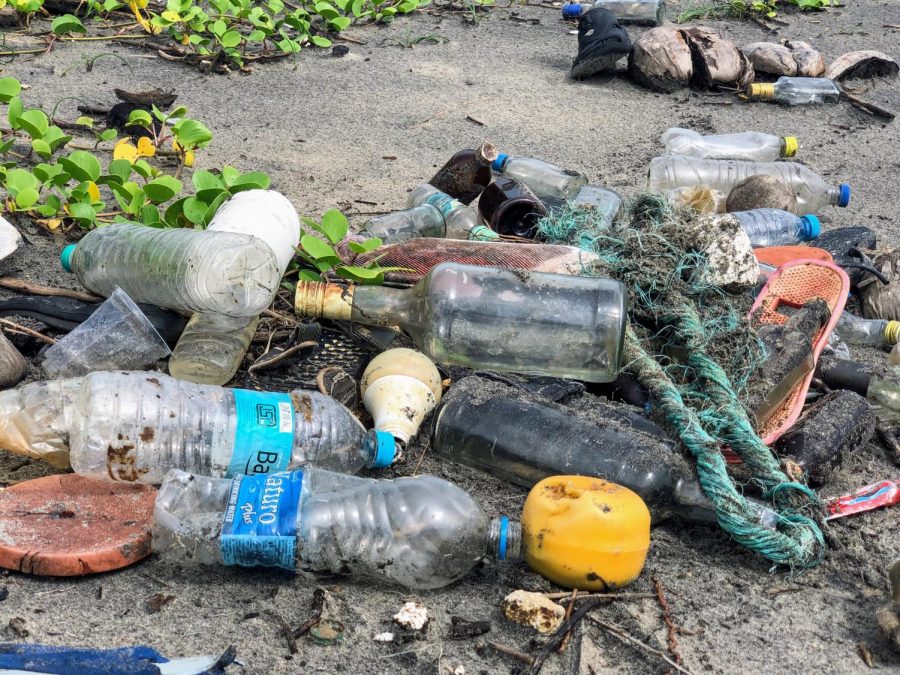Polluting Companies
How the biggest corporations in the world are accelerating the death of our planet.
Our oceans are filled with plastic, much of it produced by large corporations. In 2021, there are around 46,000 pieces of plastic in every square mile of ocean.
What are the greatest contributing factors to climate change and pollution? Many would say cars or plastic bags. In reality, 100 fossil fuel companies are responsible for 71% of all global carbon emissions. But the fossil fuel industry is not the only guilty party, considering the damages that corporations in other industries have caused.
The Coca-Cola Company markets their products around the idea of using their beverage as a way to be with the people you cherish. Hence, the famous “share a coke” campaign where the company labelled their bottles with different names, intending for customers to buy a coke for their loved ones. But behind this wholesome brand imagery, Coca-Cola’s ranks as one of the largest producers of plastic waste alongside fellow companies Nestlé, Unilever, and Pepsi-Cola. Coca-Cola alone produces more than three million tons of plastic annually. While plastic carries major benefits for corporations like low costs and convenience, it is a massive threat for the environment. Not only is plastic a killer of wildlife, non-biodegradable, and is made from the by-products of fracking, which pollutes waterways and destroys natural habitats, but the danger of microplastics is often overlooked. The majority of microplastics are created when larger pieces of plastics break down from weathering. Microplastics leach into the environment when clothing with synthetic fibers is washed, or when particles from tires made from synthetic rubber rub off, for instance. It is estimated that Americans inhale and eat about 74,000 and 121,000 particles of microplastic a year, and it is still relatively unknown if these particles pose any threats to our health.
Coca-Cola has also been engaging in morally questionable business practices when it comes to water and other local resources. In San Cristóbal De Las Casas, Mexico, a Coca-Cola plant is allowed to extract more than 300,000 gallons of water a day, despite it already being a resource-scarce area. Water has become so rare for the locals that buying soda is cheaper and more accessible, causing diabetes to run rampant in the town.
Pollution and climate change are not issues solely within the food and beverage industry, however; these are problems for which many large corporations in every industry must be held accountable.
One example is Amazon, which has turned itself into a cornerstone of shopping convenience post-COVID. In a time when packages can arrive one day after an order is placed, online shopping has never been easier. However, while the monetary price of products on Amazon is low, the environmental cost is high. In 2019, Amazon emitted 51.17 million metric tons of carbon dioxide, greater than Switzerland’s annual carbon footprint. The next-day delivery that Amazon Prime promises means that trucks carry less packages on their routes, so more trucks are sent onto the road to deliver packages causing gas emissions to skyrocket. On top of Amazon’s huge amount of emissions, the corporation produced 465 million pounds of plastic packaging waste last year. These numbers will only grow in the near future, as Amazon’s profits continue to soar with the large influx of orders they have received throughout the ongoing Coronavirus pandemic.
On the technological side of things, every year major companies like Apple and Samsung create new versions of their smartphones, laptops, and tablets. As new technology rolls out, people are quick to replace their old devices with shiny new products. But what happens to your old phone when you replace it? In the last few decades electronic waste has been a growing issue, with 50 million tons of e-waste produced last year. To make matters worse, e-waste contains many toxic components, like lead and mercury, that are hazardous to humans. Only 20% of all electronic waste is recycled, and the waste that is recycled is often sent overseas where the electronics are processed by workers in poor conditions without protective equipment . Companies like Apple create even more waste when they make changes that prevent the old technology from being compatible with the new. For example, when Apple created the Iphone 12 to use a lightning to usb-c charger when all their previous phones before the Iphone 11 used usb-a chargers, it left millions of power bricks useless for any future Apple phones.
In the modern day and age, it is nearly impossible to live a completely sustainable lifestyle. Many people have made commendable efforts to make eco-friendly swaps in their day to day lives, eliminating plastic water bottle use, using tote bags when shopping, and recycling whenever possible. While these efforts truly do make a difference, it is not enough to offset the damages that the biggest corporations in the world cause. With these companies dominating the market and going for the most convenient and economically friendly options rather than the most eco-friendly ones, the environment is in serious danger. Until governments pressure these companies to make real changes in their business operations, the world’s imminent climate catastrophe will continue to loom over us.
In reality, 100 fossil fuel companies are responsible for 71% of all global carbon emissions.
Rachel Koon is the Features Section Editor of 'The Science Survey' where she provides feedback to Staff Reporters writing articles for this section. She...











